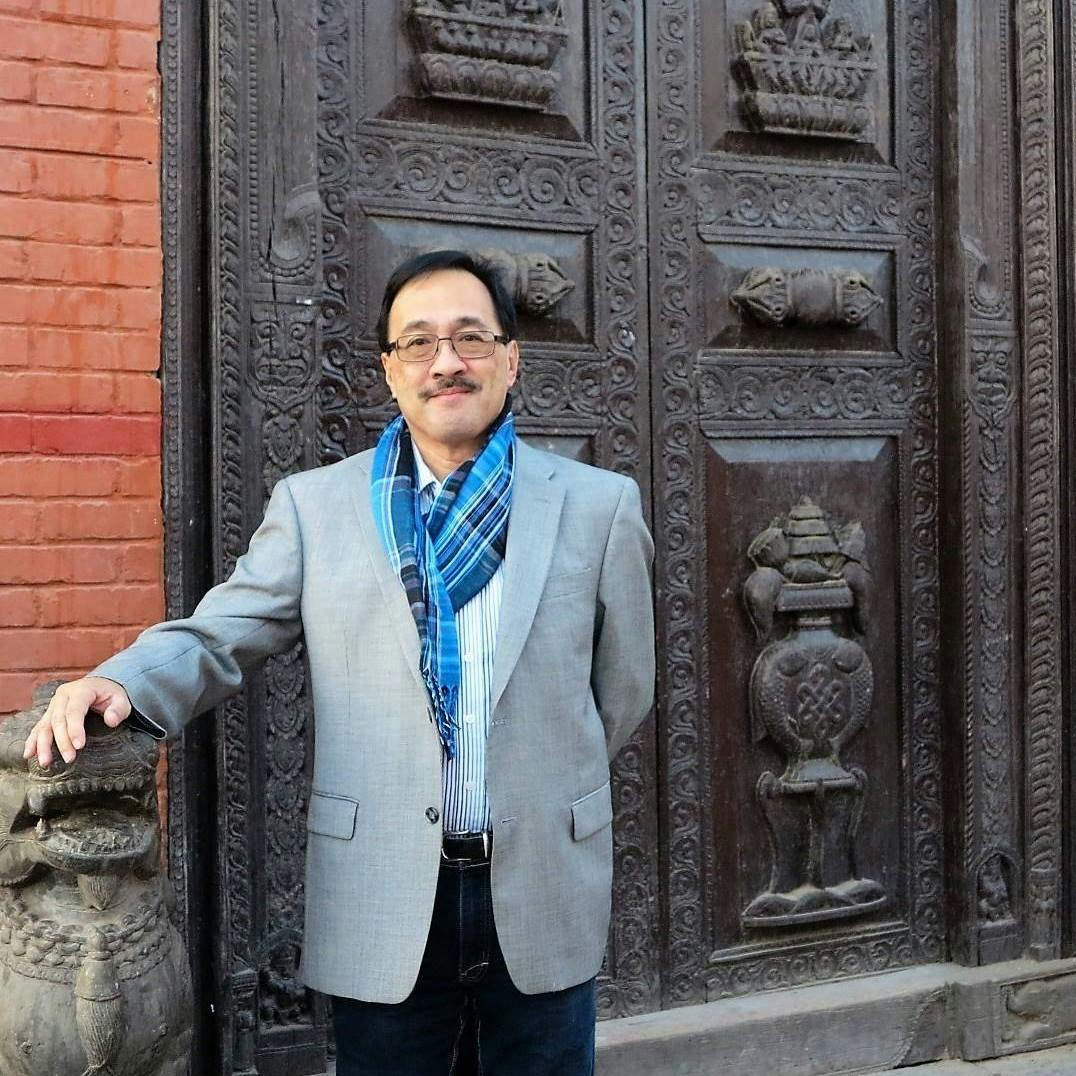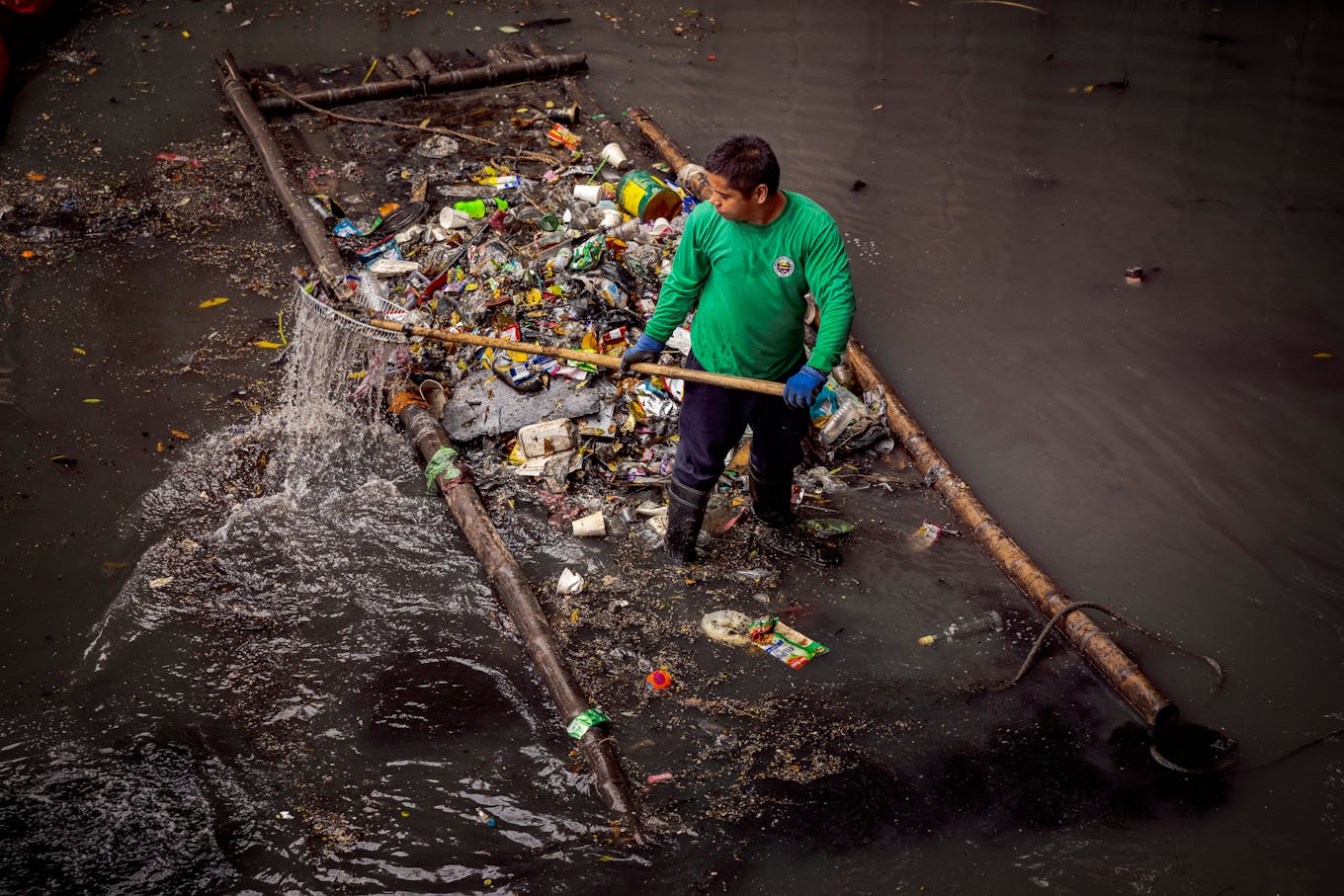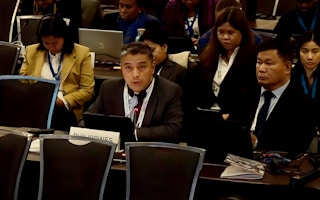As countries negotiate a first-ever global plastics treaty in Ottawa, Canada this week, parties are divided over what the treaty should include.
Policymakers from the Philippines are split on whether they should be part of a group that aims to develop an internationally legally binding treaty for the full life cycle of plastics, according to a veteran environmental scientist participating in the fourth round of United Nations-led negotiations, known as INC-4.
Some government departments, especially those working closely with the plastics and petrochemical industries in the Philippines, have opposed having the Philippines join the High Ambition Coalition. Other government departments are open to joining but the Philippine delegation is unable to announce their support for the coalition, said Jorge Emmanuel, a chemical engineer and professor of environmental and marine sciences.
Emmanuel said the best option for the Philippine delegation was to include the country’s ambition – that it is seeking a legally binding treaty that is “ambitious, effective, equitable, inclusive, and science-based” – in the opening plenary on 24 April.
The delegation is led by Department of Environment and Natural Resources (DENR) undersecretary Jose Miguel Cuna, together with the department’s chief of climate change service, Albert Magalang and chief of legal research and opinion division, Rosette S Ferrer.

Jorge Emmanuel was chief technical advisor of the United Nations Development Program in New York, consultant to the World Health Organization in Geneva, and president of the Environmental & Engineering Research Group in California. He is now adjunct professor at Siliman University, Image: Jorge Emmanuel Facebook Page
The so-called High Ambition Coalition is composed of more than 60 countries, including Japan, South Korea, Australia, European Union members, and most recently Ukraine, arguing for a strong treaty that calls for the elimination of problematic plastics, the development of global criteria and standards for plastics, transparency in the value chain, mechanisms to strengthen targets and controls over time, monitoring and reporting, as well as technical and financial assistance to developing countries.
As well as the DENR, Emmanuel said it was possible that the Department of Agriculture’s Bureau of Fisheries and Aquatic Resources wants to back the coalition, based on its call for more research on microplastics after traces of the pollutant were detected in several fish species in the archipelago.
Jam Lorenzo, BAN Toxics policy development and research officer, who is likewise present at the talks said Department of Finance’s Board of Investments (BOI), which promotes the Philippines as a viable investment destination, was “likely opposing” joining the coalition.
The board gave the “strongest opposition” during the first national consultation of Philippine government agencies, non-governmental organisations and industries in Manila, right before the third session of the intergovernmental negotiating committee (INC) in November last year, said Lorenzo.
The Philippines is the world’s leading contributor to plastic pollution in the oceans, with an average of 3.30 kilogrammes per person per year, according to a 2023 study.
More than 350,000 tonnes of plastic waste enter the ocean from the Philippines annually, accounting for 36 per cent of the world’s total plastic waste.
However, environmentalists have warned that labelling the archipelagic nation as a top polluter is “misleading” because it fails to take into account the role of industralised territories such as the United States, Japan and Europe in plastic overproduction and waste exports to developing countries like the Philippines.
The Southeast Asian country is considered an influential negotiator in the plastic treaty talks as it was a co-sponsor of the Peru-Rwanda Resolution, which resulted in the establishment of the INC at the United Nations Environment Assembly that lead to the historic resolution to develop an international legally binding instrument on plastic pollution in 2022.
Emmanuel said: “If the Philippines were to join the High Ambition Coalition, it would be a powerful statement to the world of how serious we are about ending plastic pollution.”

A river patroller collects plastic waste from San Juan river in Mandaluyong in Metro Manila, Philippines. Image: Ezra Acayan
Despite not being officially part of the High Ambition Coalition, the first week of negotiations ended on Friday with the Philippine government calling for plastic reduction targets for the first time, citing that this is necessary to keep global temperature increase below 1.5 degrees Celsius.
It was considered by green groups as a “positive first step” as the delegation submitted a country position seeking cuts in primary plastic polymers, global reduction targets, and a national phase-down timelines for the ubiquitous material.
“With this stance, we believe that the country is signaling that it is joining the call for an ambitious treaty that will put an end to plastic pollution,” said Marian Ledesma, zero waste campaigner at Greenpeace Southeast Asia.
The negotiations end on 29 April. The last plastics treaty meeting will happen in Busan, South Korea in November.
Plastics industry lobbying present in Indonesian delegation?
Indonesia, also one of the world’s top plastic polluters, has not committed to the coalition.
Since the third session of INC, it has only supported the reduction of plastic production and not the control of measures that will minimise demand for plastic, said Rahyang Nusantara, deputy director of green group Dietplastik Indonesia, who is attending the summit in Ottawa.
“We assume that this position has been influenced by industry. Our suspicion was confirmed by the list of participants issued by the INC secretariat,” Nusantara told Eco-Business.
“In the provisional list of participants of this session, we identified at least four persons from the petrochemical and bioplastic industry. They are listed as official Indonesian delegates to INC-4. Their presence in the official government delegation could lower Indonesia’s ambition in the negotiation meetings and eventually shows no political will to solve the plastic crisis.”
Companies identified as part of the government’s official delegation were Chandra Asri Petrochemical and Greenhope Biodegradable Packing Solutions, Nusantara said.
Not a single Southeast Asian country has committed to the coalition. Most Association of Southeast Asian Nations (Asean) territories have strong economic ties with the Gulf Cooperation Council (GCC), dominated by trade centring around the exchange of energy for food.
The GCC is composed of powerful fossil fuel-dependent nations which have argued against the inclusion of any upstream measures on single-use plastics. The group, which includes Bahrain, Kuwait, Oman, Qatar, Saudi Arabia, and the United Arab Emirates, does not support setting a global plastics reduction target.
Editor’s note: An original quoted source has been edited out of this story to protect their identity. The latest developments in the negotiations at Ottawa have been added to the article.
Want more Philippines ESG and sustainability news and views? Subscribe to our Eco-Business Philippines newsletter here.

















